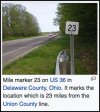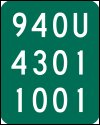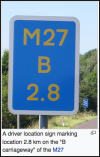SawMaster
Well-Known Member
- Joined
- Apr 10, 2015
- Messages
- 9,450
- Reaction score
- 8,315
- Location
- SC
- Country
- United States
- Dash Cam
- Numerous and ever-changing
Your camera is a double edged sword in every way, not just via GPS, since it shows how you were driving too. Use it to remind yourself to drive carefully  Average speed can be determined from video; time vs distance is the most accurate measurement of speed as that is what defines it
Average speed can be determined from video; time vs distance is the most accurate measurement of speed as that is what defines it  It must be done with care to ensure accuracy but it can be done in most instances. I watch as many crash vids as anyone and much more than most, partly for 'entertainment' and partly as a learning tool. In learning what situations lead to crashes you can better spot and avoid them. Posting your own vids should wait till a crash case is totally settled unless access to the vid is restricted and assigned to only those who need it for legal purposes. Ask and follow your attorney's advice in all legal matters
It must be done with care to ensure accuracy but it can be done in most instances. I watch as many crash vids as anyone and much more than most, partly for 'entertainment' and partly as a learning tool. In learning what situations lead to crashes you can better spot and avoid them. Posting your own vids should wait till a crash case is totally settled unless access to the vid is restricted and assigned to only those who need it for legal purposes. Ask and follow your attorney's advice in all legal matters  Nobody is a perfect driver including you and me, but it's a goal to strive for and dashcams can help us get closer to that goal even after a crash when you use the vids correctly
Nobody is a perfect driver including you and me, but it's a goal to strive for and dashcams can help us get closer to that goal even after a crash when you use the vids correctly 
Phil
Phil




